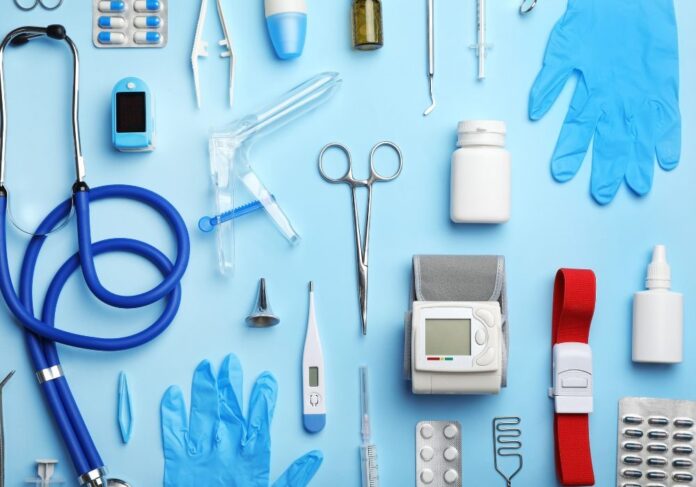Choosing the best medical devices for your facility is crucial to the health and wellness of your patients. Here are some factors to consider.
It is no secret that everything relating to the medical field is quite expensive—from devices to medications to equipment, the prices can easily rise. That is why it can be challenging for administrators to find the best tools at a reasonable price.
Some might opt for well-known names, assuming they are the best, while others might choose a device based on price. The options and choices can quickly become overwhelming. To make the process more consolidated and simpler, here are some factors to consider when selecting a medical device.
Manufacturer Knowledge
There are countless manufacturers in the medical field whose products, services, and knowledge vary, so it can be difficult to find the best of the best. Moreover, in this day and age, we must avoid fake products, as most sales occur online, where scamming is easier. Choose developers who can provide helpful and accurate product knowledge. You might consider working with a biomedical service provider, as they will test your piece of equipment to ensure it is a high-quality, detailed device that is safe to use.
Inventory Variety
As you search for a manufacturer, you want to choose one with a wide variety of inventory; this allows you freedom and flexibility to explore different equipment. Usually, manufacturers with a large list will work with suppliers they trust to create the best products. With more options, you can make an informed decision about the best equipment for your facility. Moreover, when you select a manufacturer you trust, you can feel more comfortable working with them again for other equipment you’ll require in the future.
Manufacturing Process
One aspect you cannot disregard when choosing a manufacturer is consistency in terms of product quality. Practitioners utilize medical devices in various situations, from surgery to implantations. That is why you must select a manufacturer whose production process is as efficient as possible.
One aspect to consider is your manufacturer’s deburring process for their medical devices. Some manufacturers might remove burrs by hand, leaving more room for human error. All products must look identical as any deviation could spell injury or discomfort for a patient.
Customer Service
It may seem out of the blue that customer service would be on the list of factors to consider when selecting a medical device, but it is for a good reason. When you are in the business side of the medical field, you cannot disregard the countless people who will use the devices you choose. Any issue or minor inconvenience could arise with your device that may require replacements or a new component.
When issues arise, you must ensure their rectification as soon as possible—any holdup can result in huge backups for patients and practitioners. That is why you want a manufacturer with top-notch customer service. Look for responsive customer service reps who meet demands, assist with equipment setup, and provide guaranteed warranties. Try to choose a company whose warranty grants a grace period of around 60–90 days, as most equipment can have issues during setup.
Read Also
- Transforming Patient Care with Professional Healthcare Transcription ServicesIn today’s fast-paced healthcare environment, the need for precise and timely documentation cannot be overstated. Accurate documentation is not merely an ancillary task; it is a core element of delivering high-quality patient care. The ability to maintain compliance with regulations, enhance operational efficiency, and ensure the integrity of patient records has never been more critical.… Read more: Transforming Patient Care with Professional Healthcare Transcription Services
- Essential Steps to Launch Your Own Optometry PracticeLaunching your own optometry practice can be a thrilling and fulfilling journey. However, it requires careful planning, dedication, and an understanding of what it takes to succeed. With the growth in demand for eye care, more and more individuals are seeking to start their own practices. But how do you get there? This guide walks… Read more: Essential Steps to Launch Your Own Optometry Practice
- Compounding Pharmacy: Personalized Medication SolutionsA compounding pharmacy plays a vital role in modern healthcare by providing customized medications tailored to the specific needs of individual patients. Unlike mass-produced drugs manufactured by pharmaceutical companies, compounded medications are prepared by licensed pharmacists who carefully combine, adjust, or modify ingredients to create a formulation that best suits a patient’s unique medical requirements.… Read more: Compounding Pharmacy: Personalized Medication Solutions
- The Best Business Decision a Surgeon Ever Made: Ordering a Medical Equipment AppraisalMost surgeons don’t go into medicine because they love spreadsheets, valuations, or negotiating buy-ins. They go into medicine because they want to operate, treat patients, and build something meaningful over time. For one surgeon, that mindset worked perfectly, until the day another surgeon decided to buy into his practice. That moment exposed a problem he… Read more: The Best Business Decision a Surgeon Ever Made: Ordering a Medical Equipment Appraisal
- Creative Approaches to Alleviating Healthcare Staff ShortagesHospitals and clinics are facing staff shortages, which makes it harder to take care of patients well. Finding simple and useful solutions is very important. Easy changes like flexible work hours, good training, and chances to grow can help staff stay happy. Technology, like online doctor visits and helpful tools, can make work easier. Smart… Read more: Creative Approaches to Alleviating Healthcare Staff Shortages
- Understanding the Role of Sterilizers in Healthcare FacilitiesHave you ever wondered how hospitals keep their equipment safe enough to use on dozens of patients every day? Most people never think about what happens behind the scenes, yet these hidden steps play a huge role in patient safety. Sterilizers are part of that system, working quietly to remove harmful germs before any instrument… Read more: Understanding the Role of Sterilizers in Healthcare Facilities







